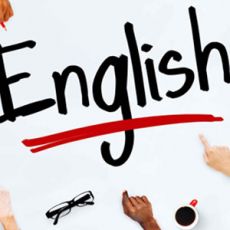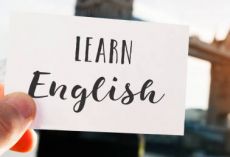1400 câu trắc nghiệm Đọc hiểu Tiếng Anh có đáp án cực hay
Chọn hình thức trắc nghiệm (10 câu/60 phút)
Chọn phần
-
Câu 1:
Students who continue studying at university after having graduated are called .........
Students working for their first degree at university are called undergraduates. Then they take their degree we say they graduate, and then they are called graduates. If they continue studying at university after they have graduated, they are called post-graduates. Full-time university students spend all their free time studying. They have no other employment. Their course usually lasts for three or four years. Medical students have to follow a course lasting for six or seven years. Then they graduate as doctors. In Britain, full-time university students have three terms of about ten weeks in each year. During these terms they go to lectures or they study by themselves. Many students become members of academic societies and sports clubs and take part in their activities. Between the university terms they have vacations (or holiday periods). Their vacations are long, but of course they can use them to study at home.
A. graduates
B. pre-graduates
C. undergraduates
D. post-graduates
-
Câu 2:
The word “graduate” in line 2 is closest in meaning to ......
Students working for their first degree at university are called undergraduates. Then they take their degree we say they graduate, and then they are called graduates. If they continue studying at university after they have graduated, they are called post-graduates. Full-time university students spend all their free time studying. They have no other employment. Their course usually lasts for three or four years. Medical students have to follow a course lasting for six or seven years. Then they graduate as doctors. In Britain, full-time university students have three terms of about ten weeks in each year. During these terms they go to lectures or they study by themselves. Many students become members of academic societies and sports clubs and take part in their activities. Between the university terms they have vacations (or holiday periods). Their vacations are long, but of course they can use them to study at home.
A. finish studying
B. start studying
C. study
D. learn
-
Câu 3:
According to the passage, the full-time university students have ............. of about 10 weeks in each year.
Students working for their first degree at university are called undergraduates. Then they take their degree we say they graduate, and then they are called graduates. If they continue studying at university after they have graduated, they are called post-graduates. Full-time university students spend all their free time studying. They have no other employment. Their course usually lasts for three or four years. Medical students have to follow a course lasting for six or seven years. Then they graduate as doctors. In Britain, full-time university students have three terms of about ten weeks in each year. During these terms they go to lectures or they study by themselves. Many students become members of academic societies and sports clubs and take part in their activities. Between the university terms they have vacations (or holiday periods). Their vacations are long, but of course they can use them to study at home.
A. two terms
B. four terms
C. seven terms
D. three terms
-
Câu 4:
The word “employment” in line 4 refers to the ......
Students working for their first degree at university are called undergraduates. Then they take their degree we say they graduate, and then they are called graduates. If they continue studying at university after they have graduated, they are called post-graduates. Full-time university students spend all their free time studying. They have no other employment. Their course usually lasts for three or four years. Medical students have to follow a course lasting for six or seven years. Then they graduate as doctors. In Britain, full-time university students have three terms of about ten weeks in each year. During these terms they go to lectures or they study by themselves. Many students become members of academic societies and sports clubs and take part in their activities. Between the university terms they have vacations (or holiday periods). Their vacations are long, but of course they can use them to study at home.
A. work
B. music
C. play
D. money
-
Câu 5:
Medical students have to follow a course lasting for ............
Students working for their first degree at university are called undergraduates. Then they take their degree we say they graduate, and then they are called graduates. If they continue studying at university after they have graduated, they are called post-graduates. Full-time university students spend all their free time studying. They have no other employment. Their course usually lasts for three or four years. Medical students have to follow a course lasting for six or seven years. Then they graduate as doctors. In Britain, full-time university students have three terms of about ten weeks in each year. During these terms they go to lectures or they study by themselves. Many students become members of academic societies and sports clubs and take part in their activities. Between the university terms they have vacations (or holiday periods). Their vacations are long, but of course they can use them to study at home.
A. four to five years
B. only 4 years
C. six or seven years
D. about 5 years
-
Câu 6:
The word “vacations” in line 9 could be best replaced by ..............
Students working for their first degree at university are called undergraduates. Then they take their degree we say they graduate, and then they are called graduates. If they continue studying at university after they have graduated, they are called post-graduates. Full-time university students spend all their free time studying. They have no other employment. Their course usually lasts for three or four years. Medical students have to follow a course lasting for six or seven years. Then they graduate as doctors. In Britain, full-time university students have three terms of about ten weeks in each year. During these terms they go to lectures or they study by themselves. Many students become members of academic societies and sports clubs and take part in their activities. Between the university terms they have vacations (or holiday periods). Their vacations are long, but of course they can use them to study at home.
A. times
B. holidays
C. visits
D. picnics
-
Câu 7:
According to the passage, students working for their first degree at .............. are called undergraduates.
Students working for their first degree at university are called undergraduates. Then they take their degree we say they graduate, and then they are called graduates. If they continue studying at university after they have graduated, they are called post-graduates. Full-time university students spend all their free time studying. They have no other employment. Their course usually lasts for three or four years. Medical students have to follow a course lasting for six or seven years. Then they graduate as doctors. In Britain, full-time university students have three terms of about ten weeks in each year. During these terms they go to lectures or they study by themselves. Many students become members of academic societies and sports clubs and take part in their activities. Between the university terms they have vacations (or holiday periods). Their vacations are long, but of course they can use them to study at home.
A. an university
B. laboratory
C. university
D. library
-
Câu 8:
Which of the following is NOT mentioned in the passage as full-time university students?
Students working for their first degree at university are called undergraduates. Then they take their degree we say they graduate, and then they are called graduates. If they continue studying at university after they have graduated, they are called post-graduates. Full-time university students spend all their free time studying. They have no other employment. Their course usually lasts for three or four years. Medical students have to follow a course lasting for six or seven years. Then they graduate as doctors. In Britain, full-time university students have three terms of about ten weeks in each year. During these terms they go to lectures or they study by themselves. Many students become members of academic societies and sports clubs and take part in their activities. Between the university terms they have vacations (or holiday periods). Their vacations are long, but of course they can use them to study at home.
A. have other work
B. go to lectures
C. study by themselves
D. become members of sports clubs
-
Câu 9:
When we apologize, ..............
It is difficult to write rules that tell exactly when we should apologize, but it is not difficult to learn how. If we have done something to hurt someone’s feeling or if we have been impolite or rude, we should apologize. An apology indicates that we realize we have made a mistake, and we are sorry for it. It is a way of expressing our regret for something. When we apologize, we admit our wrongdoing, usually offer a reason for it, and express regret.
The simplest way to apologize is to say “I’m sorry”, but often that is not enough. Let’s take a common situation. Mario is late for class and enters the classroom, interrupting the teacher in the middle of the class. What does he do? The most polite action is usually to take a seat as quietly as possible and apologize later. But if the teacher stops and waits for him to say something, he could apologize simply “I’m sorry I’m late”, ask permission to take his seat, and sit down. Naturally, more than this, a reason for the tardiness, is needed, but this is not the time or the place for it because he has already caused one interruption and doesn’t need to make it any longer or worse than it already is.
A. we express our sadness and unluckiness.
B. we realize our wrongdoing.
C. we express our happiness.
D. we admit our wrongdoing, offer a reason for it, and express regret.
-
Câu 10:
We should apologize .........
It is difficult to write rules that tell exactly when we should apologize, but it is not difficult to learn how. If we have done something to hurt someone’s feeling or if we have been impolite or rude, we should apologize. An apology indicates that we realize we have made a mistake, and we are sorry for it. It is a way of expressing our regret for something. When we apologize, we admit our wrongdoing, usually offer a reason for it, and express regret.
The simplest way to apologize is to say “I’m sorry”, but often that is not enough. Let’s take a common situation. Mario is late for class and enters the classroom, interrupting the teacher in the middle of the class. What does he do? The most polite action is usually to take a seat as quietly as possible and apologize later. But if the teacher stops and waits for him to say something, he could apologize simply “I’m sorry I’m late”, ask permission to take his seat, and sit down. Naturally, more than this, a reason for the tardiness, is needed, but this is not the time or the place for it because he has already caused one interruption and doesn’t need to make it any longer or worse than it already is.
A. when we feel tired and make mistake.
B. when we have been impolite, rude or done something to hurt someone’s feeling.
C. when we are angry with somebody about something.
D. when we are not happy or lose something.
- 1
- 2
- 3
- 4
- 5
- 6
- 7
- 8
- 9
- 10
- 11
- 12
- 13
- 14
- 15
- 16
- 17
- 18
- 19
- 20
- 21
- 22
- 23
- 24
- 25
- 26
- 27
- 28
- 29
- 30
- 31
- 32
- 33
- 34
- 35
- 36
- 37
- 38
- 39
- 40
- 41
- 42
- 43
- 44
- 45
- 46
- 47
- 48
- 49
- 50
- 51
- 52
- 53
- 54
- 55
- 56
- 57
- 58
- 59
- 60
- 61
- 62
- 63
- 64
- 65
- 66
- 67
- 68
- 69
- 70
- 71
- 72
- 73
- 74
- 75
- 76
- 77
- 78
- 79
- 80
- 81
- 82
- 83
- 84
- 85
- 86
- 87
- 88
- 89
- 90
- 91
- 92
- 93
- 94
- 95
- 96
- 97
- 98
- 99
- 100
- 101
- 102
- 103
- 104
- 105
- 106
- 107
- 108
- 109
- 110
- 111
- 112
- 113
- 114
- 115
- 116
- 117
- 118
- 119
- 120
- 121
- 122
- 123
- 124
- 125
- 126
- 127
- 128
- 129
- 130
- 131
- 132
- 133
- 134
- 135
- 136
- 137
- 138
- Đề ngẫu nhiên
Phần

















